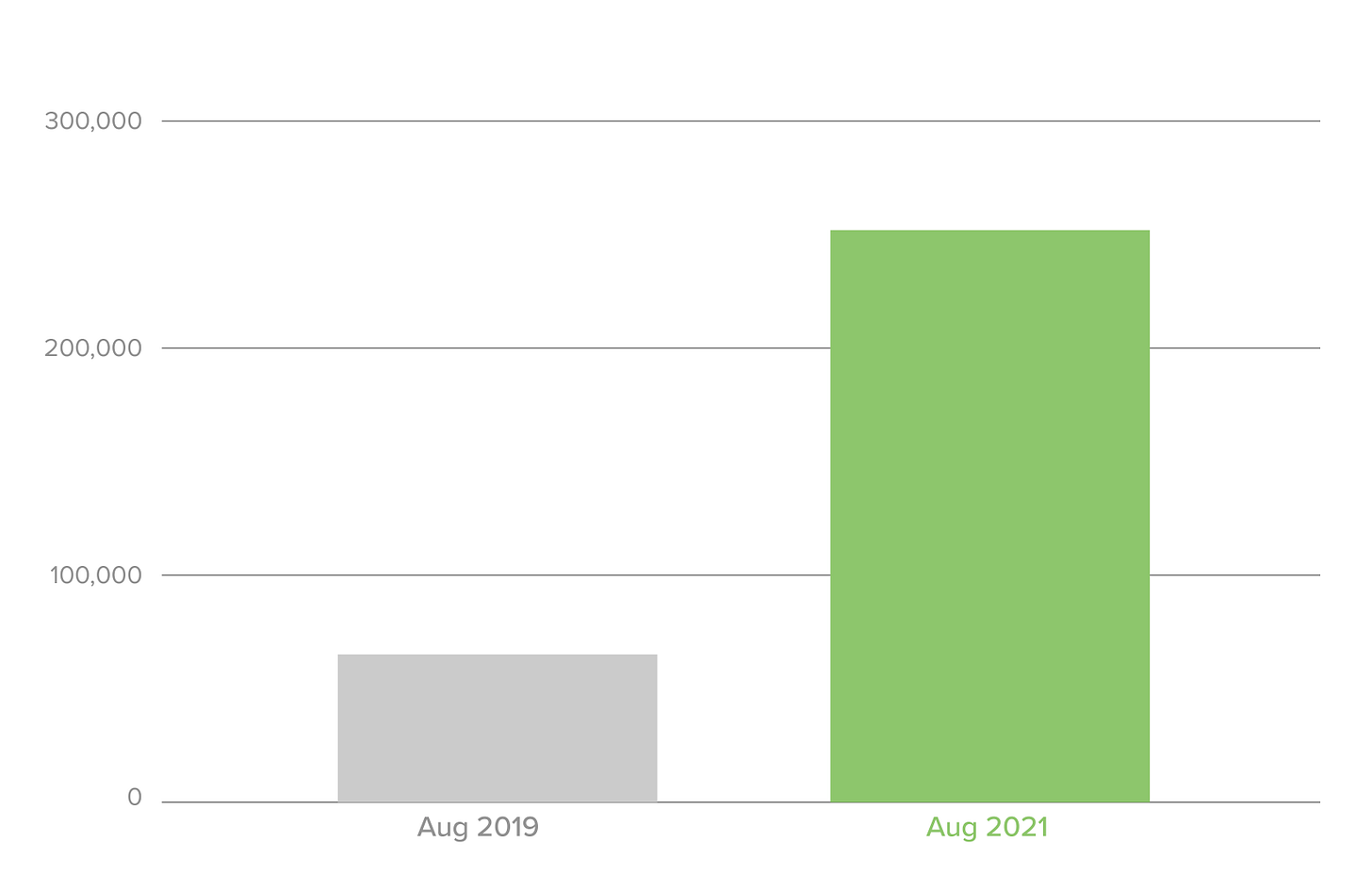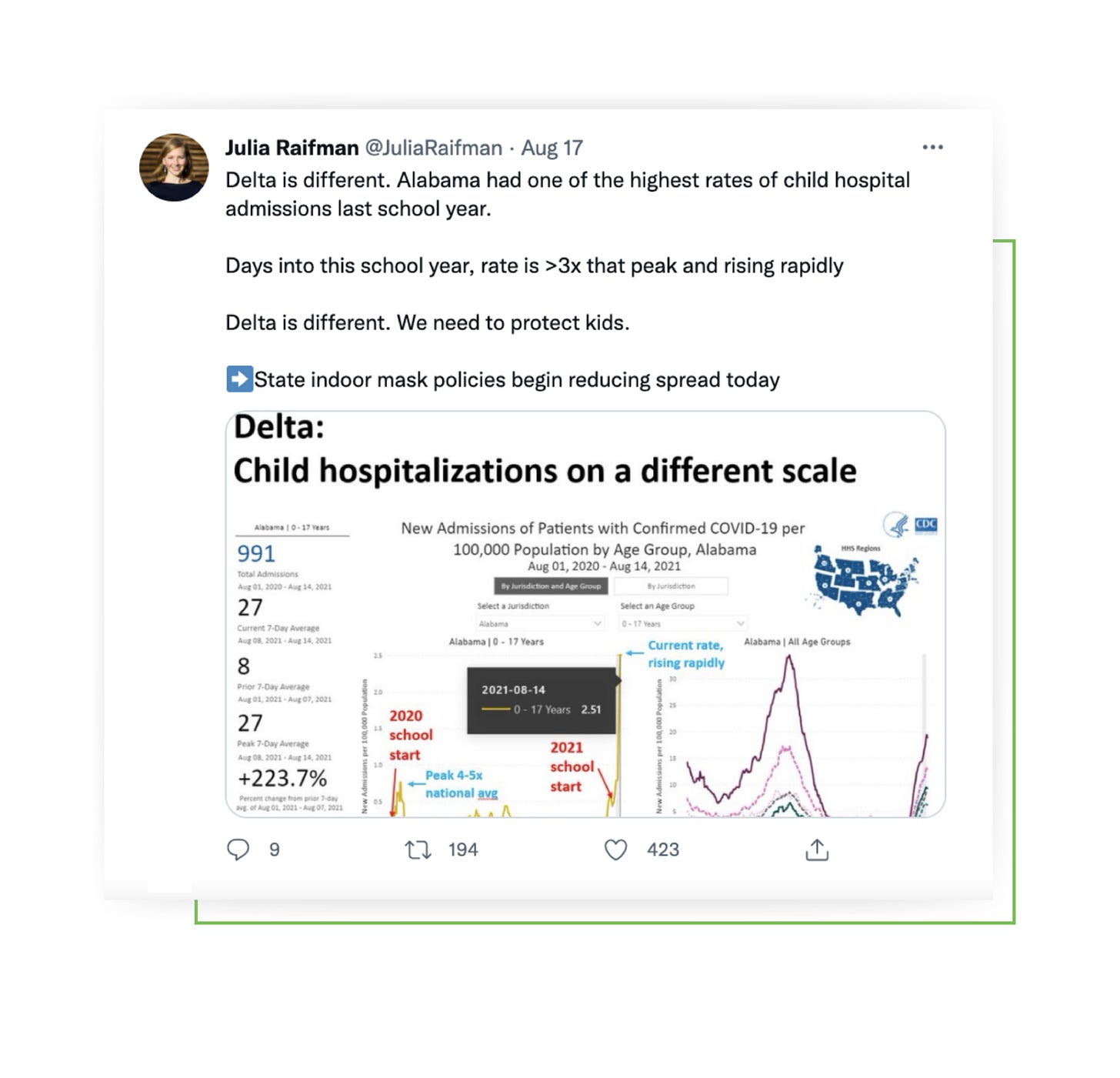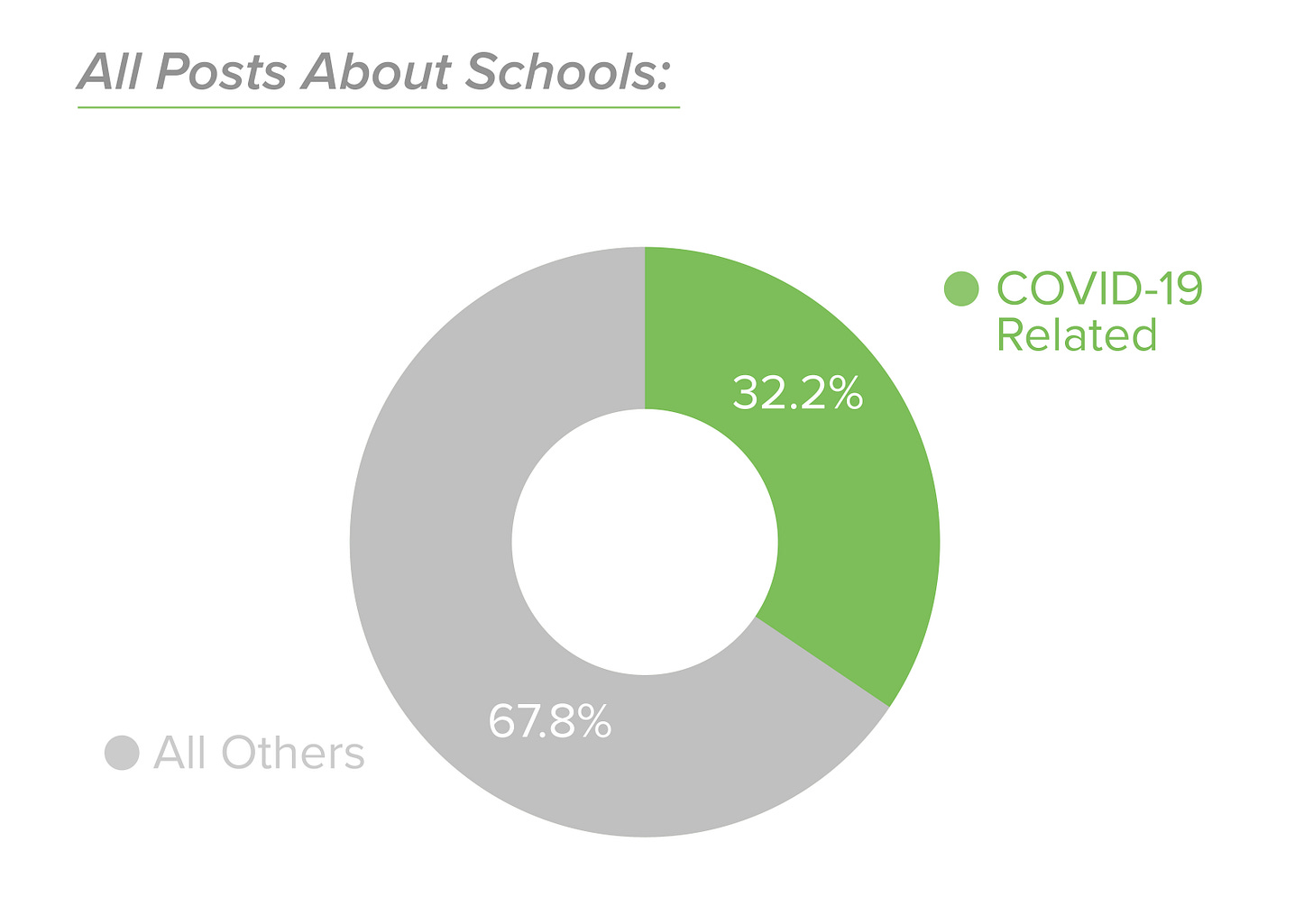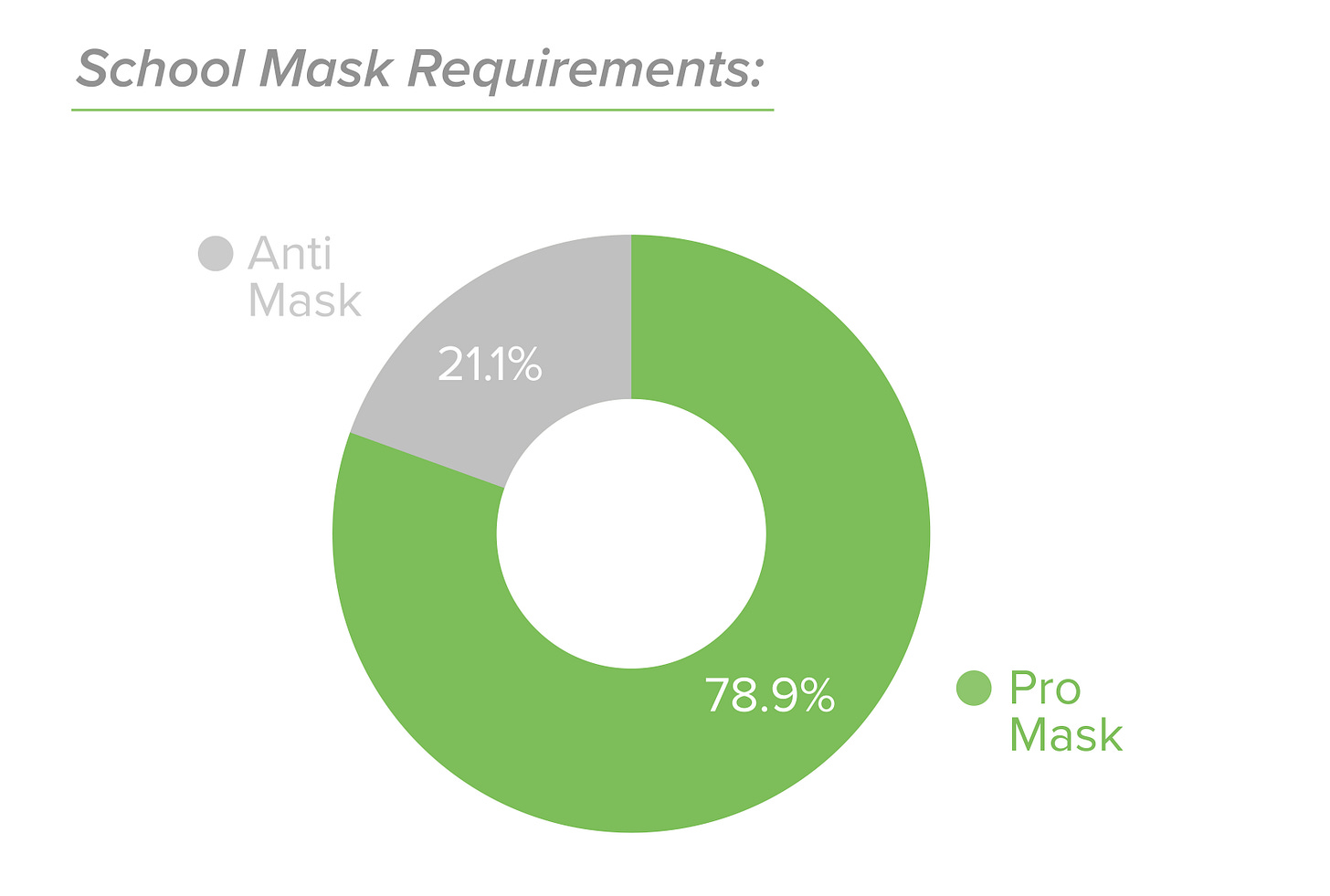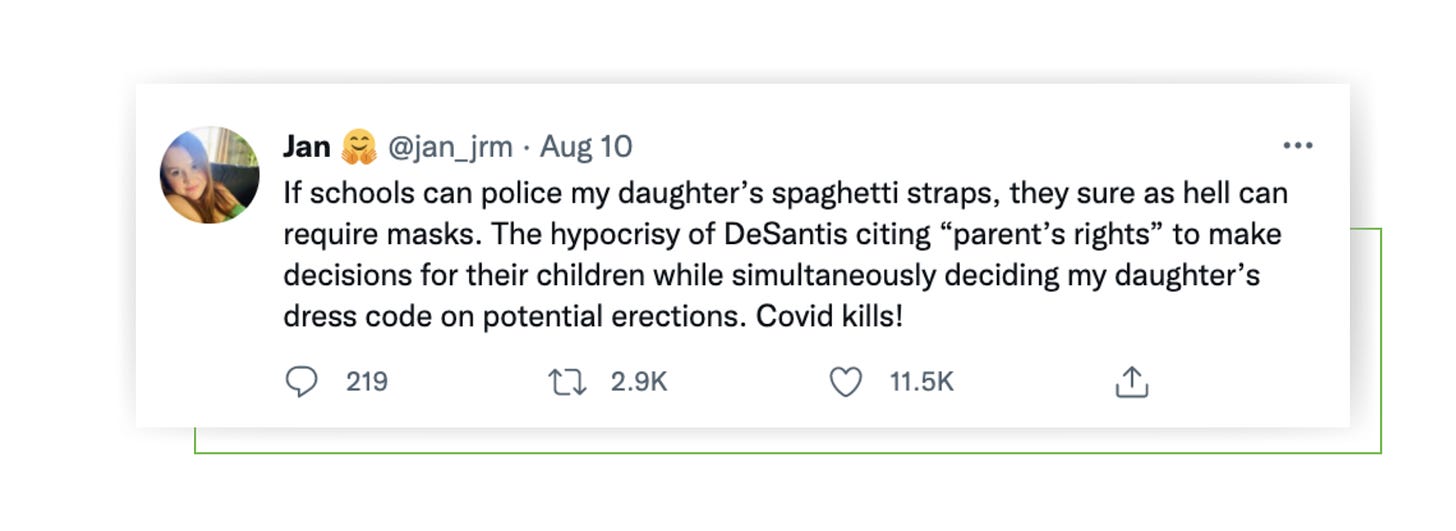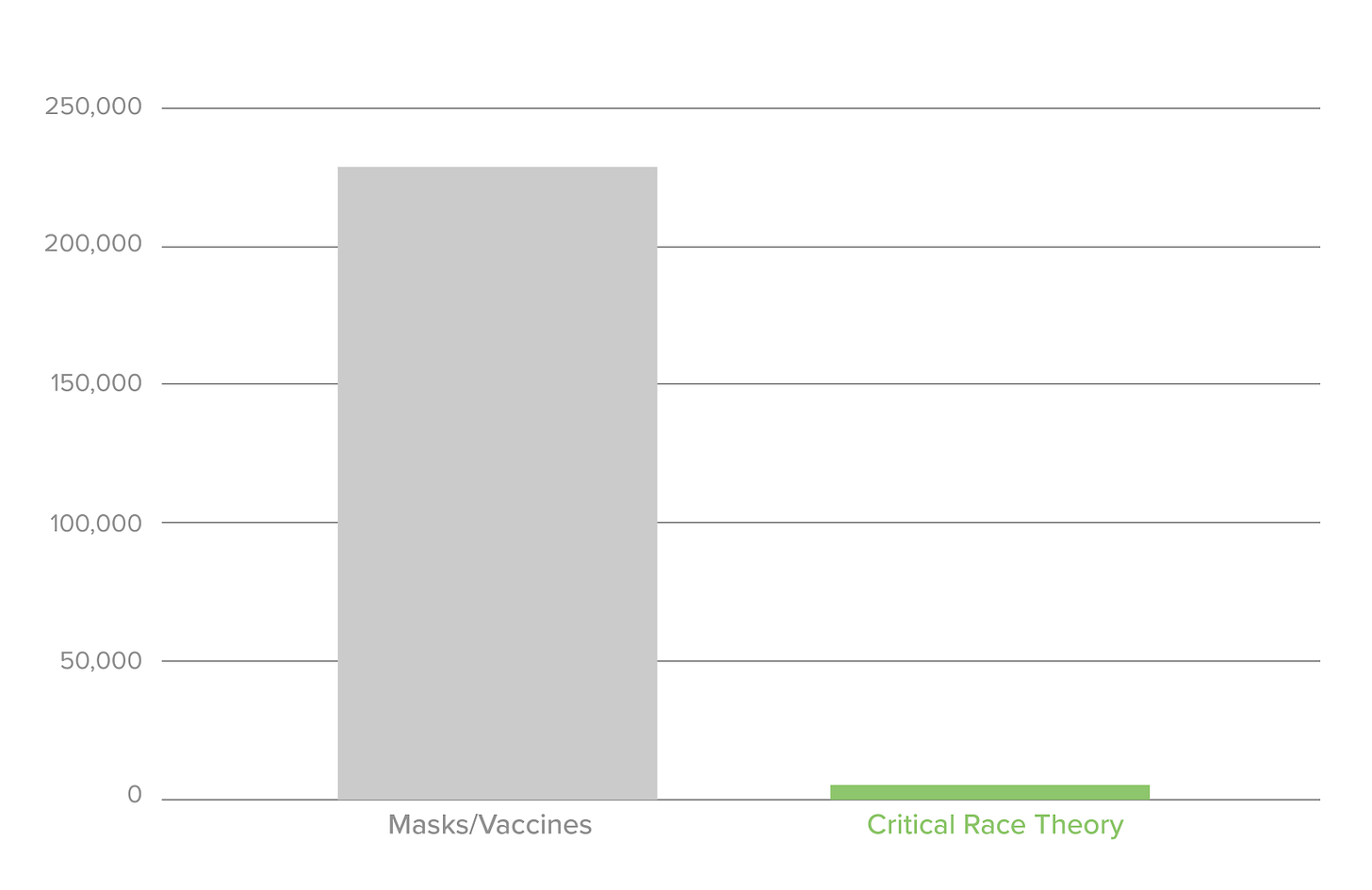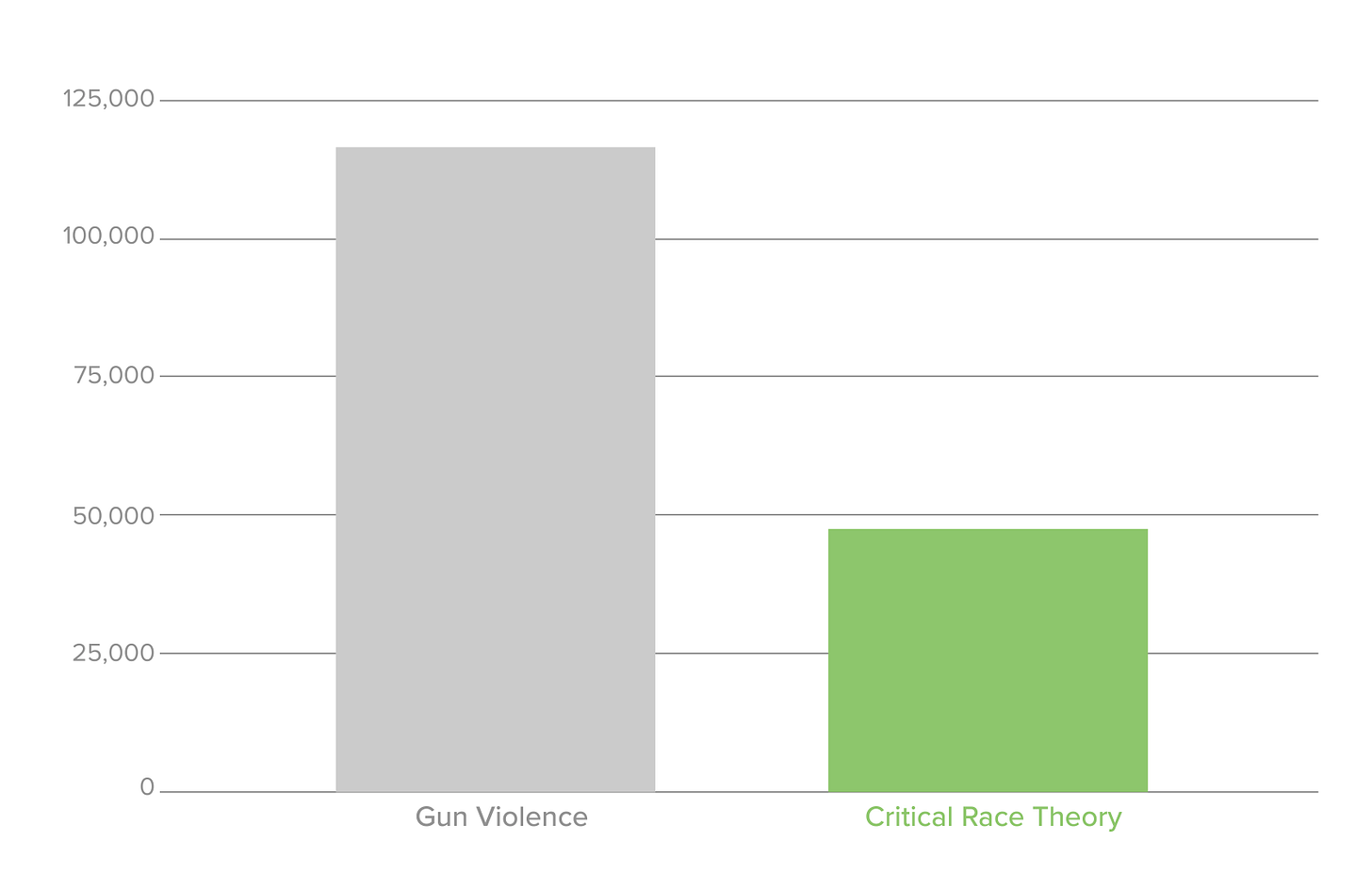Back-To-School Politics - Here’s What Parents Care About Most (and it’s not Critical Race Theory)
We looked at over 8.75 million online messages to understand how communicators can connect with parents sending their kids back to school.
Welcome To What The Polls Don’t Tell Us! You’re receiving this new biweekly newsletter because you have worked with Main Street One in the past, or you have asked to be added to our distribution list. Learn more about Main Street One’s work here.
Covid Safety Is Everything - And School Shootings Are Mentioned Twice As Much As Critical Race Theory
BIG TAKEAWAY: Parents In 2021 Fear That Schools Aren’t Protecting Their Kids.
The word “protect” is being used 4 times more often in 2021 than 2019 when talking about school-age children.
Masks and vaccines mentioned in almost 1 in every 3 online posts about school.
School shootings are mentioned more than twice as often as critical race theory, and masks/vaccines are mentioned fifty times more than critical race theory.
SLEEPER TAKEAWAY: Critical race theory is the dog that has stopped barking - even Tom Cotton’s Senate amendment banning CRT in August failed to generate much conversation.
This past June, as Covid appeared to be receding for a brief moment, schools were a huge part of the news cycle - not because of masks or remote learning, but because right-leaning pundits were sounding alarm bells about critical race theory and videos of contentious school board meetings were rapidly trending on social media.
Polls make it look like critical race theory is a powerful issue for Republicans - a recent survey of Virginians analyzing issues in the gubernatorial election found that “[a]mong those who have a good idea what CRT is, 40% view it favorably, but more (47%) see it unfavorably,” and that “[m]ore see its teaching as bad for America (47%) than good for America (44%).”
However, as the Delta variant has surged across the country, the political ground has shifted almost as quickly, and conversation about schools is now primarily focused on Covid safety protocols, especially for kids under 12 for whom no vaccine is available.
“Protecting” students has become the top priority - not from anti-American history teachers, but from infection and illness.
When discussing school-age children, the word “protect” is itself being used more than 4 times as much in August of 2021 as in the pre-pandemic August of 2019:
In fact, out of more than 8 million online posts about school in August, nearly 1 in 3 was Covid-related:
But are these posts from people who are in favor of more safety protocols like masks and vaccines? Or are they from people pushing back against those protocols? After all, viral videos of parents inveighing against critical race theory have been supplanted online by viral videos of parents inveighing against mask requirements.
Raucous school board meetings make for attention-grabbing content, but when examining the total conversation online, a different picture emerges. Let’s take school mask mandates - in spite of the loud minority, pro-mask voices are almost 4 times as numerous as anti-mask voices:
In other words, despite the loud protests of anti-mask advocates, Covid safety precautions for schools enjoy broad support and little opposition online.
But what about critical race theory? Is it still simmering under the surface? Sen. Tom Cotton thinks so - he was able to organize passage of an anti-CRT amendment to the budget reconciliation bill this month...which barely made a ripple in the school dialogue. Masks and vaccines were mentioned more than fifty times as often as CRT in the August conversation about school:
Even an issue that is receiving a fraction of the attention from the media--the threat of gun violence at school--was mentioned more than twice as often as critical race theory when people discussed schools in August:
Bottom line: for communicators looking to resonate with parents during back-to-school season, protecting kids from real threats like Covid and gun violence is much more important than protecting them from critical race theory.




